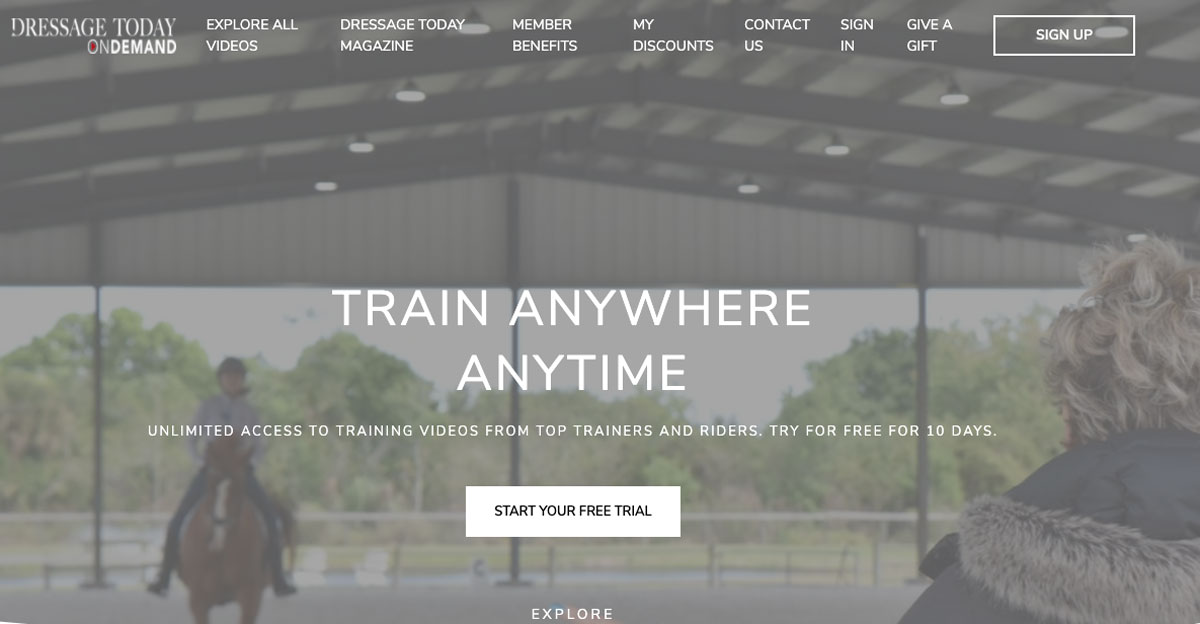
Enrolling in online courses is an option for getting involved with virtual education. It is becoming increasingly popular among trainers to develop and launch their training programs, as well as organizations to consolidate multiple trainers into one virtual learning platform. Members pay to watch training videos and take virtual courses.
Most online educational platforms will offer you a free trial period to see if the information is right for you.
EquiStat Elite Million Dollar Winner and an NCHA Million Dollar Rider and trainer Al Dunning was among the first to launch personal online courses. Al Dunning Consulting, LLC, helps trainers with their business, organization and facility management and design. He also has Team AD, an accreditation program as well as an online VoiceOver training program. And he offers Equi-University, run by Richard Godbee, PhD, which offers videos on many topics.
“We try to keep updated on all information when it comes to bookkeeping, website management, social media, IT work, and other communication tools,” he said. “This allows us to be a leader in our industry.”
Much of the information presented comes from Dunning’s personal experiences as a trainer and facility design. In areas where he doesn’t have the expertise, he hires those who do.
“I hire people who have expertise in specific areas,” he said. “I have a person working for me that has a Masters in Business and an on-staff IT manager.”
The Certified Horsemanship Association (CHA) also offers many online educational videos. Check https://cha.horse/education/#cha-webinars for CHA webinars and https://www.movingimagesnw.com/eh-series for CHA streaming video service.
Editor’s note: Our parent company, Equine Network LLC, has several brands that offer online educational membership platforms. Check out these subscription video on demand (SVOD) portals: DressageTodayOnDemand, Horse&RiderOnDemand, Roping.com and EventingTraining.com.
DIY Online Courses
You might feel like you have something special to offer in online courses.
Denise Alvarez, owner of Stormlily Marketing, offers three pieces of advice for getting started with your own virtual courses.
1. Know your audience. “It’s important to have a full understanding of who you are creating it for. This includes knowing the problems that they have and how your virtual course is going to help them solve those problems,” she said.
2. Make it easy to consume. It’s easy to be overwhelmed with the tech side of things, but the simpler your first virtual course is, the better.
3. Build an email list. “Take the time to build and nurture an email list that knows, likes, and trust you. Then, when you’re ready to sell your virtual course, you have built an audience of people who are ready to buy what you have to offer,” she said.


